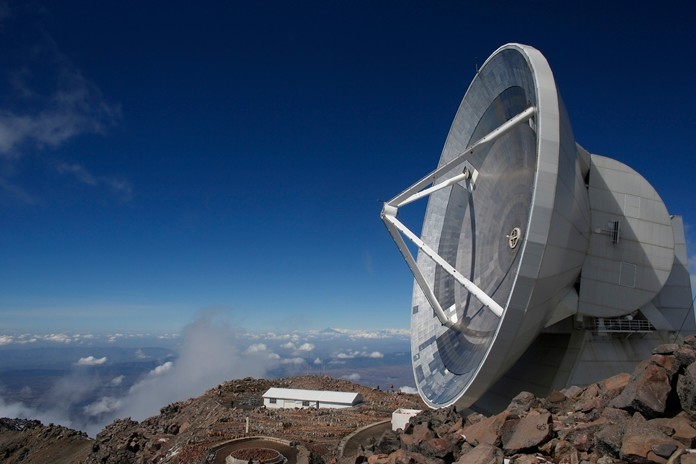
Mexico City (AP) – Astronomers have become the latest victims of Mexico’s violence with activities at two observatories being reduced because their staff suffered crimes while travelling to the remote mountain sites, researchers said Thursday, Feb. 7.
The problems occurred near the Alfonso Serrano Large Millimeter Telescope, or LMT, in the central Mexico state of Puebla. It is the world’s largest single-dish steerable millimeter-wavelength telescope and is jointly run by the University of Massachusetts at Amherst and Mexico’s national institute of astrophysics.
LMT “has reduced its scientific activities to a minimum level due to the security problems in the region surrounding the telescope,” said university spokesman Ed Blaguszewski.
“The University of Massachusetts Amherst has suspended travel of UMass personnel to the LMT site, and we have retained security consultants to advise us on security risks in the area and strategies to deal with these risks,” he said.
Mexico’s astrophysics institute said in a statement that “the unsafe conditions that prevail in the region are well known and public.”
The other affected site is the HAWC gamma ray and cosmic ray observation facility. The HWAC is an international collaboration between more than 30 institutions in Mexico, the United States, and Europe.
Both are located on the Sierra Negra volcano near the Pico de Orizaba, Mexico’s highest peak, with its clear air and lack of nearby light pollution.
The area, around Puebla state’s border with neighboring Veracruz, has long been the scene of criminal activity by the now-fragmented Zetas drug cartel. But in recent years it has also been hit by violence associated with gangs that drill taps into government fuel pipelines to steal gasoline and diesel.
None of the researchers specified exactly what kind of crimes they had suffered, but local media have reported that people travelling to the Sierra Negra have been carjacked and robbed on roads leading to the peak.
Astronomy Professor F. Peter Schloerb, the director of the LMT office for UMass Amherst, declined to give specifics but said “we had just one incident that precipitated our recent decision.”
“No one was harmed, and I don’t think that we at LMT are particularly singled out by the criminals,” Schloerb wrote. “Nevertheless, we do feel that it is important to review the situation carefully before returning to normal operations.”
A Puebla state official who was not authorized to be quoted by name said the only serious incident he was aware of occurred in December, when a person travelling to work at the telescope suffered a carjacking on his way to the site.
The state police have since said they will provide escorts for astronomers and telescope personnel.
Mexico has suffered a rising tide of homicides, which peaked at 33,341 in 2018, a 15.5 increase over 2017.
The violence has affected many areas of public life; 26 priests were killed in Mexico between 2012 and 2018, and even environmental inspectors have been killed after mistakenly stumbling on drug labs. But to date scientists had not been affected.
 |
 |





